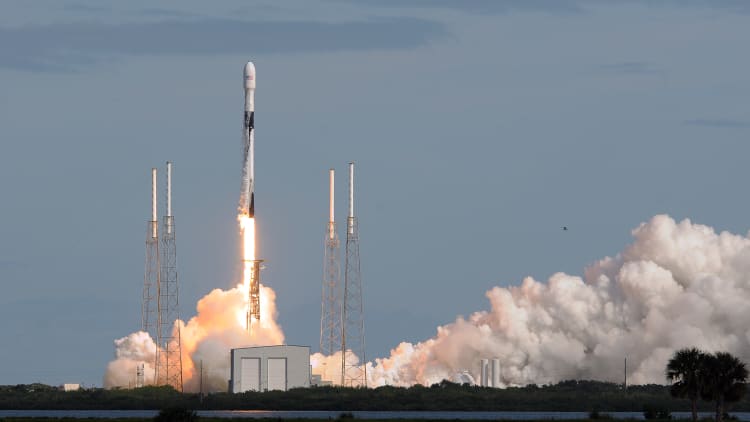Apple has been secretly staffing a team to find new ways to beam data directly between its devices and satellites.
The team now has about a dozen engineers from the aerospace, satellite and antenna design industries, according to Bloomberg News, citing people familiar with the matter. The project is in its early stages, the report said, but Apple CEO Tim Cook has expressed interest in the work.
Representatives from Apple were not immediately available for comment.
It remains unclear if Apple plans to build its own satellites or if it will use existing satellites. Apple's interest is likely to transport data directly to devices, reducing the dependence on wireless carriers. The technology could enable Apple to circumvent a traditional wireless network and improve functions like location tracking.
As part of the staffing effort, Apple has hired Michael Trela and John Fenwick, former head of satellite engineering at Google and former head of spacecraft operations at Google, respectively, according to their LinkedIn profiles. Apple has also hired Matt Ettus, the Bloomberg report said, who founded Ettus Research, which sells wireless networking equipment.
Apple would be the latest entrant into an increasingly crowded, high-stakes market that includes SpaceX and Amazon.
Earlier this year, CNBC reported on Amazon's Project Kuiper, the e-commerce giant's plans to build a network of 3,236 satellites in an attempt to provide global internet access. Amazon announced this week that it would build its R&D headquarters for Project Kuiper in Redmond, Washington, not far from Amazon's home base in Seattle. And last year, Elon Musk's SpaceX launched the first two satellites of its "Starlink" network. The network is expected to be operational once at least 800 satellites are deployed.
In 2015, Facebook decided against spending up to $1 billion on a satellite that would provide internet to underserved regions in Africa and other continents. Instead, Facebook opted to lease broadband onboard Spacecom's Amos-6 satellite, which was destroyed when a SpaceX Falcon 9 rocket exploded during fueling before launch in 2016.
Microsoft founder Bill Gates in the late '90s helped fund Teledesic, in an effort to build low-Earth satellites to provide internet service. Yet Teledesic closed in 2002, after racking up more than $9 billion in costs.
The space industry is estimated to expand rapidly over the next three decades, with the satellite internet sector anticipated to expand at an exponential rate.
-- CNBC's Michael Sheetz contributed to this report.



